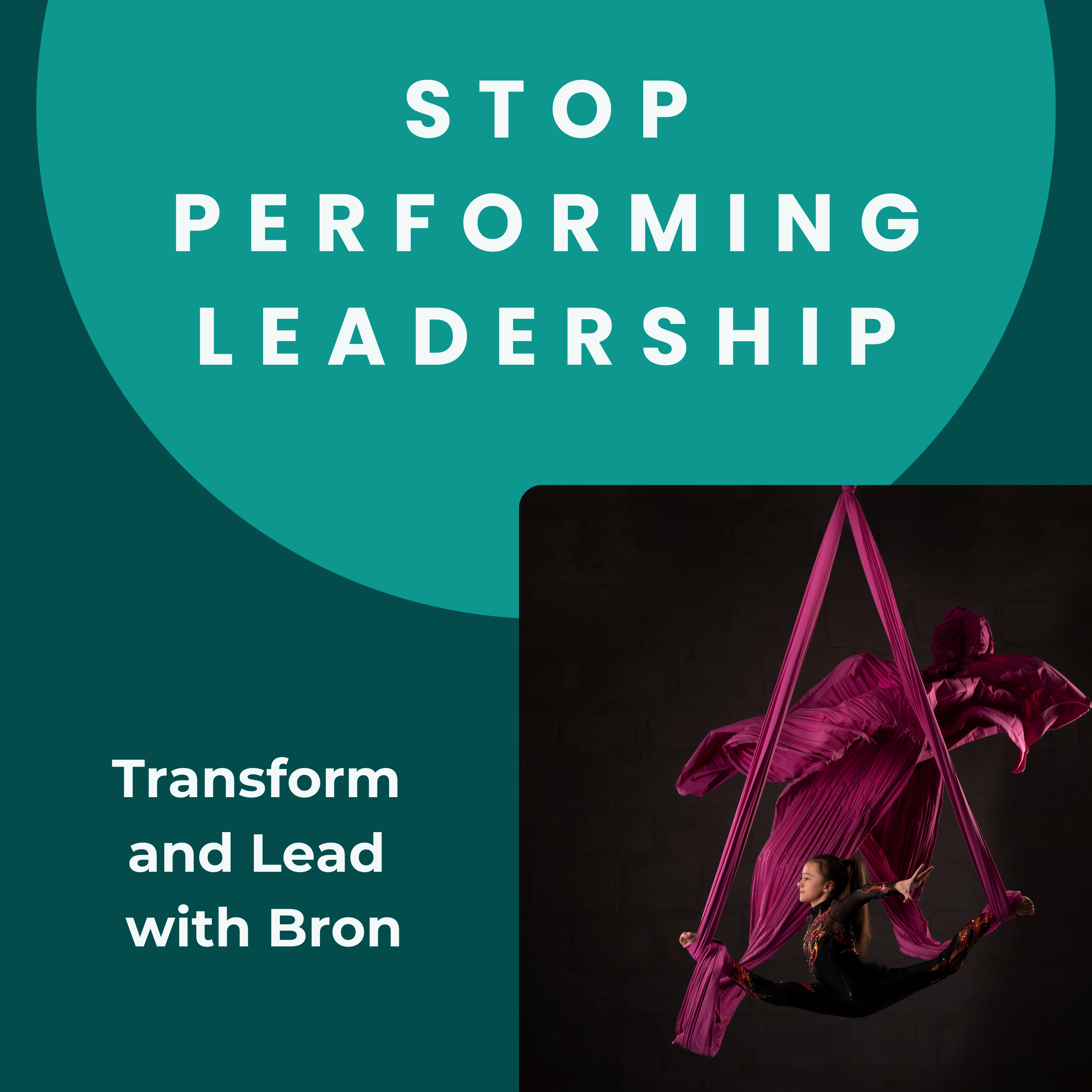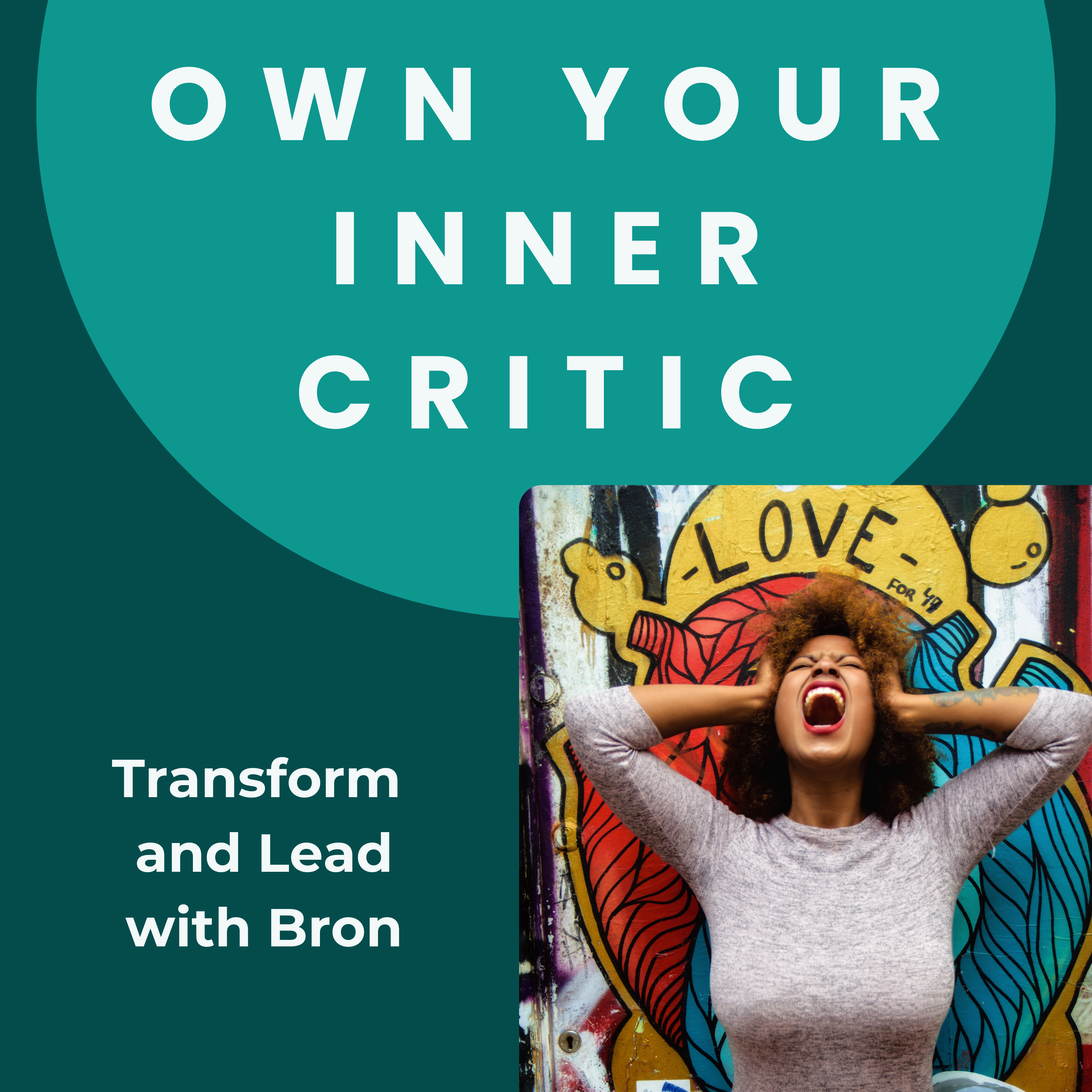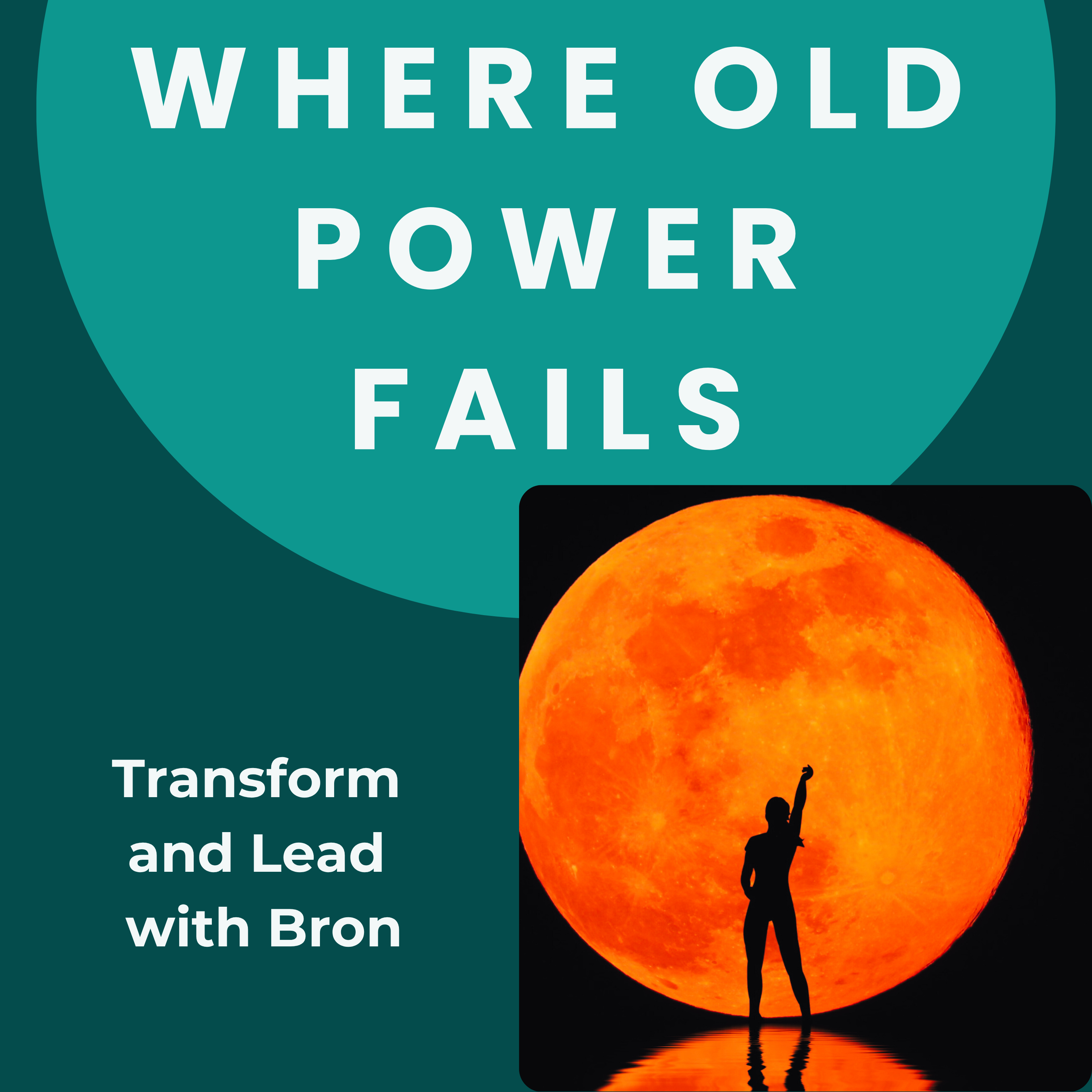Episode Transcript
[00:00:04] Welcome to Transform and Lead. I'm Bron Stephens, ex CEO turned executive coach, who is all about women, uplifting women. I know what it's like to question whether your way of leading is enough. You've worked hard, you're ambitious, and you want to do big things without having to fit into someone else's mold. This podcast is here to give you practical, powerful ways to own your ambition, femininity and power so that you can lead with confidence, your way.
[00:00:31] Welcome back to Transform and Lead. And this week we're talking about balance. Or actually, we're not. If you're listening to this and you're already juggling too much, please know this isn't about telling you to do more. It's offering you a way to let go of a few things. Because what I want to offer you today is that this whole idea of work life balance, the way it's sold to women, is broken. And we all know sells this fantasy that if we just find the right diary, workflow app or meal planner, everything's going to click into place and balance will magically appear and that we just need to say yes to the right things, delegate like a boss, and finally reach that magic point where everything runs smoothly, as if we just need to fine tune and optimize a little more. And honestly, some of that can help, but it's not the full story, or even most of the story. Balance isn't just a time management problem. It's a mental load problem. So let me bring you into the research. A 2024 survey by news.com showed that 78% of Australian women are experiencing burnout and 81% say workplace stress is worse than ever. That's not a blip, that's a pattern. And that data is backed up in every survey that I can find. And it's not just in the workplace. A Guardian report earlier this year revealed women in Australia are still doing 50% more housework than men. That includes organising dinner, remembering the school excursion forms, noticing when the toilet paper's low, and mentally running three lists at all while on a team's call. That's what the mental load is. And I'm sure you already know this. It's not just doing the thing, but tracking the thing, anticipating it, managing it, carrying it, and it's invisible. But it costs you.
So now I want to bring you one of my favorite tools for reframing how we think about what really matters. And you might have heard of this before, it's glass balls and rubber balls analogy. And it's from the commencement speech by Brian Dyson, former CEO of Coca Cola, he said, imagine life as a game in which you're juggling five balls. They are work, family, health, friends and spirit. You're keeping all of them in the air, but you'll come to understand that work is a rubber ball. If you drop it, it will bounce back. The others, family, health, friend, spirit are made of glass. If you drop one of these, it will be irrevocably scuffed, marked, or even shattered.
Now, I don't usually take my wisdom from commencement speeches, but this one stuck and albeit I think it's a little oversimplified. So I'm going to offer you a modified version today.
Because for women, high performing women who've been told that they can have it all, it's not about whether or not we can juggle. It's whether or not we know which tools are glass. And here's the extra layer I want to give you. Glass and rubber isn't just about the categories. It's about moments.
Yes, work is often a rubber ball, but not always. That presentation where you're pitching your next promotion, that's a glass ball. For now.
And yes, family is deeply important in spirit and fitness and all of those things.
But not every school lunch is a glass ball. Not every dress up day. It doesn't make you a bad parent to skip one.
And done is done. The only people who care about whether the cake or costume is homemade are people whose opinion doesn't matter. They're not in the arena with you. And the same goes for everything else. If your workout is done but it's not perfect, it's still done. And you'll do better next time. Or you won't.
But as long as you're managing and thinking about your health and your wellbeing and your spirit and picking the moments that really matter in those, you're going to be playing in the right way. Yes, when your child is sick and needs you at home, that's a glass ball. When your partner needs support through a tough time, that's a glass ball.
When your child has to carpool because you can't get away at 3pm, that's a rubber ball. When the washing didn't get done, that can bounce. It's not about fixed priorities, it's about conscious choices. And I want to add something to this.
It's also about knowing that you're not the only one juggling. You don't need to carry the full mental load alone. You don't need to be across every detail, we are allowed to drop the rubber balls. And those in the arena with you, the other working mothers, those looking to create equity in the workplace, they know what you're doing and they can help you here by normalising the experience because there's power in normalising this. It helps you to stop thinking everything is glass. It helps you recognise everyone is dropping something and your skill needs to be in making it. Conscious choice about what you drop and dropping things that bounce.
So how does this apply in real life?
Let me give you something concrete. A client of mine, let's call her Kate, heads up a division of a national company. She's brilliant, ambitious, kind and just exhausted. And she's not just carrying a workload, she's carrying the mental load of being the one who keeps everything afloat. And she told me, I don't mind working hard, but I hate that I'm checking emails during dinner and answering messages in bed while my partner's asleep.
She wasn't failing at balance. She was caught in the always on trap, and this is a big one. Digital presenteeism. That expectation to be constantly available doesn't just blur boundaries, it erases them entirely.
And Kate had this feeling that being responsive made her reliable. What she didn't realize is that it was draining her ability to be strategic, creative and calm. The very quality she was hired and promoted for.
And it's sneaky, this trap. It starts with a few after hours replies and before you know it, your value becomes tied to your availability rather than your impact.
So we worked together to identify our glass balls. That week they were showing up for a sun school assembly. Absolutely. Glass. Prepping for a monthly board pack. Glass. Coordinating Friday team drinks. Rubber.
Reading every comment in a late night group chat. Rubber. She dropped the last two. She let them bounce and guess what? The team drink still happened. The chat kept chatting and no one really noticed. What they did notice was that she showed up present, confident and re energized.
And we think that being responsive makes us better leaders, but actually it makes us more brittle. You can't lead well if you're running on fumes. You don't have space for thinking, creativity or strategy when you're only ever responding. And so this is an easy example. And yes, there's legislation now that says that we shouldn't be responding out of hours, but the reality is we all know it's still happening.
So let's go practical here. Here's four gentle shifts that have worked for my clients and that you might want to try if they feel right for you.
Firstly, name your glass balls. So is it your health right now? Your kids? Your sanity? Name it, honour it and make it non negotiable.
So those are the things that you know. When they come up, you are not dropping. You are not letting them go, you're not letting them fall. You're holding them tight and keeping them in the air. The next one Drop a rubber ball deliberately.
Maybe it's not replying to that email tonight. Maybe it's saying no to a meeting. That could have been a brief Let something bounce. In fact, practice letting things bounce and watch what happens.
Because spoiler alert. Nothing catches fire when you drop a rubber ball. When you drop a glass ball, sure it goes south, but when you drop a rubber ball, nothing happens. Let it drop. The third one I want you to try is turn off your notifications. Not just on weekends, but right now. In fact, your tech can do it for you to turn on and off notifications at certain hours of the day. So use that.
Create one notification free hour in your day and be fully present in it. Or create time every night where your notifications turn off from 6pm and you don't need to connect to what's happening and be fully present. Whether that's for your deep work, your deep rest or for deep play.
All of these are valuable. And the last one Share the load. Even the invisible one. Have honest conversations about how things are getting done at home and at work and stop being the default project manager of everyone's lives. That includes the Friday drinks, the morning teas and the meeting minutes at work and all of the housework at home.
If it's a rubber ball, and a lot of the time it can be a rubber ball. Let it drop if no one else is going to catch it.
Now, I know words make it sound easy and it is going to take some practice and it is going to take some unlearning. But here's what I know you can't achieve your way out of burnout. You have to reframe how you measure success. And balance isn't about doing everything equally, it's about doing what matters. Delivering deliberately. And sometimes that means letting something drop and choosing to be okay with it. Perfectionism is not an asset. If this is hitting home for you, I'd love you to take a moment and reflect on this. What's one rubber ball you can drop this week?
And what's one glass ball you want to protect?
Write it down and let that be your leadership decision today.
One that's not made from fear, but one that's made from power.
Thanks for joining me this fortnight on Transform and Lead. If this episode gave you a new way of thinking about balance, share it with someone else who needs to hear it. And if you haven't already hit, subscribe and leave a review. Your words help other women find this show. Until next time, drop a ball, keep a power and own your ambition.


